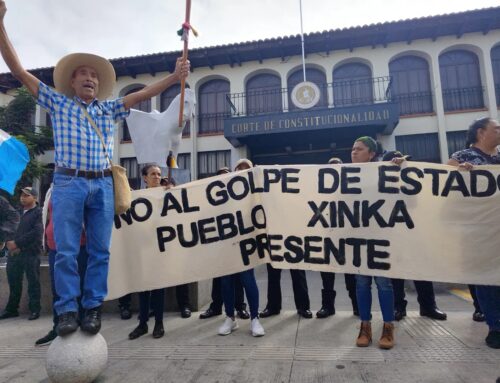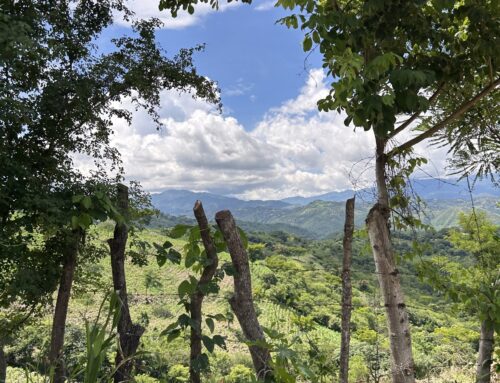 |
| Benjamin Jerónimo, President of the AJR Photo: Kevin Hayes |
How does the AJR feel about the opening of the genocide case trial?
The truth is that I feel satisfied. Despite all of the procedural appeals made by the
What have been the challenges to moving the case forward?
It has been a great challenge to reach the oral public debate. Although there have been obstacles, we have worked closely with our lawyers to keep the defense from succeeding in once again obstructing the process.
And now that the oral debate has opened, what do you think might be obstacles or challenges in the case?
The defense always tries to find ways to continue to impede the process. For example, we found out that the defense presented a new procedural appeal but we have analyzed the situation and it will not affect the opening of the debate. We are prepared and expect to have a trial.
What does the case mean for you all, as human rights defenders and survivors of the armed internal conflict?
As survivors and human rights defenders, I believe it is our right to demand justice and to reveal the truth. As human rights defenders, as survivors, as leaders, and as a community, it is our obligation to fight for justice so that survivors [of the genocide] are recognized as human beings. The goal is to have a favorable sentence that serves as a precedent. There is no one who more deserves justice and equality before the law than the survivors of the genocide. This is what we are trying to do, what we believe we must achieve as human rights defenders.
What will it mean for Guatemala if this case is won?
It will mean that there is justice for all, no matter the rank or economic status of the person. This has never before been achieved in Guatemala. It would set a precedent for our community and for other countries that are also in the process of seeking justice. Moreover, it would set a precedent for the youth, for those who are with us today and those who are to come, so that they know the truth. They have to know what a dirty war is, a war in which people were taken advantage of, who had no way of defending themselves, and were not guilty of what they were being accused.
What are your long-term vision and hope for this case and the fight against impunity?
We hope for a firm sentence. Maybe it won’t be from one day to the next, but there is hope that the new generations will have a better future as a result of this process. We want the rights of the indigenous peoples and communities, those who were most discriminated against during the war, to be respected. We demand that the State treat all people as equals, regardless of their history or origin. We also hope that with this sentence, the impunity in this country will be reduced, both for the crimes committed during the armed conflict and for the crimes of today. What the Association hopes for is a definitive change in favor of equality.
NISGUA has provided human rights accompaniment to the witness’ organization, the Association for Justice and Reconciliation, and their lawyers, the Center for Human Rights Legal Action since 2000. We will continue to bear witness to the truth and bravery of these survivors throughout this historic trial. To bear witness with us, stay tuned to our ongoing live Twitter coverage @NISGUA_Guate, like our Facebook page and sign up for email updates.






Leave A Comment